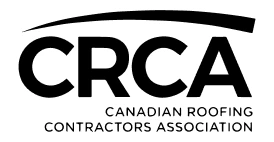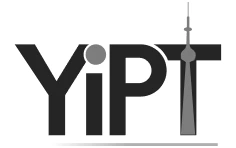A Complete Guide to Commercial Property Insurance in Canada
Commercial property insurance in Canada protects your business’s physical assets, including buildings, equipment, inventory, and signage, against fire, theft, vandalism, and natural disasters. Tailored coverage and optional add-ons ensure your business recovers quickly from unexpected events.
Running a business is rewarding, but it comes with real operational risks. From a burst pipe damaging your workspace to a fire destroying valuable stock, a single incident can impact your income, assets, and ability to serve customers.
That’s why commercial property insurance is a must-have for Canadian business owners. In this guide, we’ll walk you through the ins and outs of property insurance for businesses.
What Is Commercial Property Insurance?
Commercial property insurance in Canada, also known as business property insurance, is a type of coverage that protects a business's physical assets from damage or loss resulting from external events. Typically, those events include:
- Fires
- Theft
- Vandalism
- Natural disasters
The assets that fall under commercial property insurance coverage include:
- Buildings
- Equipment
- Inventory
- Furniture
- Signage
- Outdoor fixtures (fences)
This insurance ensures your tangible business assets are financially protected, whether you operate from a commercial office space, retail space, or even your home.
Why Is Commercial Property Insurance Essential for Canadian Businesses
Commercial property insurance is vital for almost all Canadian businesses. In many cases, landlords require proof of coverage as part of a lease or rental agreement (if using a commercial space). This protects both your business and the property owner.
In Canada, recurring seasonal events such as wildfires, ice storms, and heavy snow can cause severe damage to property and equipment. Rising rates of theft and vandalism also pose real risks to Canadian business owners.
Without commercial property insurance coverage, you could face catastrophic financial losses or total business closure in the event of any of these events or acts. The right coverage ensures that your property and assets are protected from major losses and downtime, so you can recover and resume operations after an event.

Image source: Canva
What Does Commercial Property Insurance Cover?
Commercial property insurance policies often target specific physical elements of a business, depending on its setup.
Building Structure, Equipment, and Contents
The primary component of property insurance for businesses is coverage for your building and business contents. This includes the structure itself and the physical assets, whether owned or leased, you use to operate daily.
Coverage typically includes:
- Building Structure: foundation, walls, roofing, framing, and any permanent fixtures or installations
- Business Contents: Equipment, machinery, tools, furniture, computers, hardware, and electronics essential to daily operations.
- Owned or Leased Spaces: Whether you own or lease the property, your insurance can protect the space and its contents.
With the right coverage, your business can recover faster from events like fire, theft, or natural disasters. You’ll minimize both downtime and unexpected costs.
Signage, Inventory, Leased Improvements
Commercial property insurance also safeguards additional assets critical to your operations:
- Signage: Outdoor signs, indoor wayfinding (i.e. aisle signage), and promotional displays are covered, ensuring your branding and business visibility are protected.
- Tenant Improvements and Leasehold Enhancements: Renovations or upgrades you make to your leased space, such as lighting, flooring, cabinetry, or furnishing, are included, even if they aren’t covered under your landlord’s policy.
- Inventory: Merchandise, product offerings, and raw materials are protected against damage, theft, or loss, helping you maintain continuity and cash flow.
With business property insurance protecting your assets, improvements, and inventory, you can operate with confidence and resilience, even in the face of incidents.
Optional Add-Ons
Not all risks are covered by business property insurance. However, you can seek optional add-ons to protect some aspects of your business that don’t typically fall under this coverage.
- Business Interruption: Covers lost income and ongoing expenses during temporary closures, helping your business recover financially until operations resume.
- Equipment Breakdown: Protects essential machinery, HVAC units, production equipment, and computer systems from mechanical or electrical failure.
- Workplace Injuries: Optional extensions can cover employee injuries from falls, slips, repetitive strain, or hazardous conditions on-site.
- Environmental Hazards: Provides coverage for chemical spills, contamination, and certain types of pollution that may impact your property or operations.
- Commercial Auto Insurance: While business vehicles aren’t typically included under standard business property insurance, this add-on protects against accidents, theft, or vehicle breakdowns.
- Commercial General Liability (CGL): Extends protection to third-party bodily injury or property damage, which standard property insurance doesn’t cover.
|
Coverage Type |
Included in Base Policy |
Available as Add-On |
|
Building Structure |
✅ |
❌ |
|
Business Contents (BPP) |
✅ |
❌ |
|
Signage |
✅ |
❌ |
|
Business Interruption |
❌ |
✅ |
|
Equipment Breakdown |
❌ |
✅ |
|
Flood or Earthquake |
❌ |
✅ |
|
Workplace Injuries |
❌ |
✅ |
|
Environmental Hazards |
❌ |
✅ |
|
Commercial Auto Insurance |
❌ |
✅ |
|
Commercial General Liability |
❌ |
✅ |
|
Did you know that not all policies include business interruption coverage? Book a free consultation with one of KASE’s expert commercial property brokers for tailored coverage that meets your needs. |

Image source: Canva
What Does Commercial Property Insurance Not Cover?
Commercial property insurance does not cover natural disasters, such as floods and earthquakes, cyberattacks, gradual damage (including wear and tear or mould), and pest infestations. These exclusions necessitate separate policies, add-ons, or regular maintenance to effectively manage the associated risks.
Flood and Earthquake
Property insurance for businesses typically doesn’t cover losses from floods or earthquakes because they’re considered high-risk. You’ll need to secure separate or add-on coverage for them, especially if your business operates in an area prone to floods or earthquakes.
Cyber Crime Insurance
Cyber incidents, such as hacks, data breaches, or ransomware, fall outside of commercial property insurance. To protect against these digital threats and potential income loss, you’ll need to get a dedicated cyber insurance policy.
Wear and Tear, Mould, Rot
Property insurance for businesses typically excludes structural degradation, such as wear and tear, mould, and rot. Insurers expect business owners to maintain their properties through regular inspection and upkeep.
Pest or Infestation Damage
Damage caused by rodents, insects, or birds is excluded, as infestations are considered preventable through proper maintenance and pest control measures. Limited coverage may apply only if pests enter due to a covered peril, such as storm damage, creating opportunities for pests to enter your establishment.
Commercial Property Insurance Exclusions Table
|
Excluded Risk |
Covered with Add-On? |
Notes |
|
Flood / Earthquake |
✅ |
Available as an endorsement |
|
Cybercrime / Data Breach |
❌ |
Requires a Cyber Liability policy |
|
Wear and Tear |
❌ |
Not insurable |
|
Pest or Mould Damage |
❌ |
Considered maintenance-related |

Image source: Canva
Understanding the Different Types of Property Insurance Policies
Commercial property insurance isn’t a single, one-size-fits-all policy. In Canada, businesses can choose from different types of property insurance to match their operational needs, location risks, and asset profile. Understanding these policy types helps you select the coverage plan, whether for your daily operations, vacancy periods, or during construction.
Named Perils vs All-Risks Policies
There are two main types of commercial property insurance in Canada: named perils and all-risks (comprehensive) policies.
- Named perils policies only cover risks specifically listed in your policy, such as fire, theft, vandalism, or storm damage. Any event not listed is not covered.
- All-risks policies assume that all perils are covered, except those explicitly excluded in your contract. While more comprehensive, these policies still have exclusions that should be carefully reviewed to avoid gaps.
Business Personal Property (BPP)
Business Personal Property insurance covers the movable contents of your business against covered losses like fire or theft. These include office furniture, computers, machinery, supplies, and inventory.
BPP coverage typically extends to items within 100 feet of your premises, allowing you to replace or repair crucial business equipment damaged in an incident.
Insurance for Vacant or Unoccupied Commercial Buildings
Standard commercial property polices often limit or exclude coverage for buildings left vacant for more than 30 to 60 days. Vacant commercial property insurance (also known as unoccupied commercial property insurance) fills this gap, covering fire, vandalism, and liability risks during periods of vacancy.
These premiums tend to be higher due to the elevated risks associated with vacant properties. However, they’re essential if your property will be temporarily unused.
Builders Risk Insurance
Also known as Course of Construction Insurance, Builders Risk Insurance provides coverage for your building while it’s under construction or undergoing renovation.
Its coverage typically includes the structure, on-site materials, equipment, machinery, and temporary structures against risks such as fire, theft, vandalism and certain weather events. This policy typically remains in effect throughout the project's duration.
Types of Commercial Property Insurance Comparison Table
|
Policy Type |
What It Covers |
Best For |
Cost Range |
|
Named Perils |
Only listed risks |
Small businesses with low exposure |
Low – Medium |
|
All-Risks |
All risks except exclusions |
Medium to high-risk operations |
Medium – High |
|
Business Personal Property |
Equipment, inventory, and furniture only |
Tenants and startups |
Low |
|
Vacant Property Insurance |
Damage while the property is unoccupied |
Landlords, commercial investors |
Medium |
|
Builders Risk Insurance |
Damage during renovations or builds |
Developers, contractors |
Medium – High |

Image source: Canva
How Much Does Commercial Property Insurance Cost in Canada?
The average annual premium for Commercial property insurance in Canada typically ranges between $1,000 and $10,000 per year. This depends on your business size, location, industry, and risk profile. Smaller businesses often pay less, whereas larger enterprises with more assets and exposure pay higher premiums.
However, the answer isn’t straightforward. Insurance costs can vary significantly throughout Canada, depending on numerous variables.
Factors Influencing Cost
- Location: Business properties in high-crime or disaster-prone areas usually pay higher premiums due to localized risks.
- Industry: High-risk sectors, such as manufacturing or construction, typically incur higher premiums than low-risk industries, including professional services.
- Size: The bigger the building, the higher the premium. There’s simply more equipment and inventory to cover, meaning the cost will be higher as well.
- Claims History: A record of frequent or recent claims may increase your costs since commercial property insurance brokers might view your business as higher-risk.
Cost-Optimization Tips
- Bundle Policies: Combining your commercial property insurance with other policies, such as commercial auto or liability coverage, through a single provider can reduce overall costs.
- Increase Deductibles: A higher deductible can substantially lower your premium, but be prepared to pay more out-of-pocket if you file a claim.
- Bolster Security: Installing a robust security system, complete with fire alarms, cameras, sprinklers and more, can help lower your premiums since higher security reduces crime risk. This also includes adding cybersecurity measures such as firewalls, multi-factor authentication, data backups, and encryption.
- Shop Around: Compare quotes from numerous insurers or use commercial property insurance brokers to find the best quote for your budget.
- Review Coverage Regularly: Ensure your policy accurately reflects your business's current state, including its assets and operations, so you’re only paying for what you truly need.
Commercial Property Insurance Cost Table
|
Business Type |
Property Type |
Estimated Annual Premium (CAD) |
|
Small Retail Store |
Leased Unit |
$750 – $1,200 |
|
Office Space |
Owned or Leased |
|
|
Restaurant |
Leased with Kitchen |
|
|
Warehouse |
Owned Facility |
|
|
Manufacturer |
Multi-Use Building |

Image source: Canva
Do You Really Need Property Insurance for Your Business?
Definitely. While commercial property insurance isn’t legally required by the Canadian federal government, most businesses need it to operate securely and meet legal, contractual, and financial obligations.
It acts as a safety net against unexpected losses, while protecting your assets, securing financing, and helping your business recover quickly after disruptions.
Legal or Lease Requirements
Many Canadian landlords require tenants to carry some form of business property insurance as part of their lease. These contracts often specify minimum coverage limits and required policy types to protect both the landlord’s investment and the tenant’s assets.
Failure to meet these conditions can result in a breach of contract, eviction, or loss of tenancy.
Industry-Specific Risks
Some industries face heightened exposure to loss which makes commercial property insurance even more paramount. For instance, businesses that store high-value inventory, specialized machinery, or operate in crime- or disaster-prone areas face greater financial consequences.
If these companies skip out on insurance, a single uninsured incident, such as fire, theft, or equipment breakdown, could cripple operations or force permanent closure.
Lender Obligations
If your business property is financed, lenders almost always require proof of commercial property insurance. This protects the lender in case of damage or property loss. Forgoing this type of insurance can prevent you from securing funding, refinancing, or risk defaulting on your loan if losses occur.
→ Learn more: 5 Commercial Property Insurance Claims Examples

Image source: Canva
How to Choose the Right Policy with a Commercial Insurance Broker
The best way to choose the right commercial property insurance policy is to work with a trusted commercial insurance broker. Insurance professionals provide expert guidance, compare quotes from multiple insurers, and help you secure coverage that fits your business’s unique risks and budget.
- Access to More Options and Better Rates: Brokers work with multiple insurers, allowing them to compare coverage limits, deductibles, and premiums to find the best fit on your behalf.
- Tailored Coverage Guidance: They assess your business risks to identify vulnerabilities that need to be addressed, thereby avoiding gaps or unnecessary add-ons.
- Proactive Management: Brokers provide risk analysis and loss prevention advice to minimize claims and maintain low premiums.
At KASE Insurance, we operate as commercial property insurance brokers who bring high-level expertise to help you find the perfect policy. Our goal is to help you secure an insurance policy that scales with your business as it grows.
|
Not sure where to start? Simplify your commercial property insurance plan with expert guidance from our insurance specialists. Get tailored coverage recommendations and start optimizing your benefits program today! |
Key Learnings:
- Protect Your Assets: Coverage includes buildings, equipment, inventory, furniture, signage, and outdoor fixtures.
- Optional Add-Ons: Include business interruption, equipment breakdown, environmental hazards, and commercial auto coverage.
- Understand Exclusions: Flood, earthquake, cybercrime, wear and tear, and pest damage often require separate policies.
- Policy Types: Choose between named perils, all-risks, business personal property, vacant property, and builders' risk insurance.
- Cost Factors: Premiums vary based on location, industry, property size, and claims history.
- Insurance is Essential: Required by landlords, lenders, and for high-risk industries to protect against financial losses.
- Work With a Broker: KASE Insurance brokers provide tailored policies, risk analysis, and access to multiple insurers.
- Regular Reviews: Update policies to reflect business growth, asset changes, and evolving risks.
Frequently Asked Questions
Commercial property insurance in Canada typically covers buildings, equipment, inventory, furniture, signage, and leasehold improvements. Optional add-ons can include business interruption, equipment breakdown, environmental hazards, and commercial auto insurance.
The cost of commercial property insurance varies widely. Small businesses typically pay between $750 and $2,500 per year, depending on property type, location, and risk. Larger businesses with more assets, higher-risk operations, or multi-use buildings can see premiums ranging from $3,000 to $10,000+ annually.
A deductible refers to the amount of money you agree to pay out of pocket before your insurance coverage becomes active. For instance, if you have a $2,000 deductible and a $10,000 covered loss, you will pay the first $2,000 (deductible) and your insurance provider will pay the remaining balance of $8,000.
Begin with a professional appraisal to determine the replacement cost of your building and its contents. That includes assets such as equipment, inventory, and leasehold improvements. Ensure that you review and update your coverage regularly to reflect any changes in your business operations or property value.
If you insure your property for less than its actual value, you might face what’s known as a co-insurance penalty. This means you’ll have to pay a portion of any claim out of pocket. Therefore, it’s crucial to insure the value of your business.
Build a Commercial Property Insurance Plan That Works
A well-suited commercial property insurance policy is foundational for protecting your business assets. It shields your property, equipment, and structures against theft, fire, weather extremes, and other hazards.
With the right coverage, you create a financial cushion that allows your business to recover quickly from setbacks and resume operations with confidence.
At KASE Insurance, we simplify the process of finding the right policy. Beyond comparing commercial property insurance quote, we connect you with top providers and tailor coverage to your unique risks, whether it’s basic protection or specialized add-ons.
Secure your business for the long term. Contact KASE Insurance today to get a comprehensive commercial property insurance plan designed to protect your business for years to come!


 416 588 5273
416 588 5273 (416) 588 5273
(416) 588 5273 









